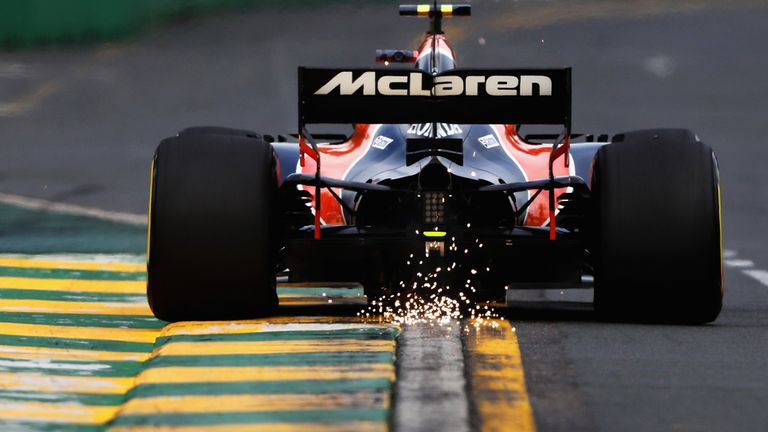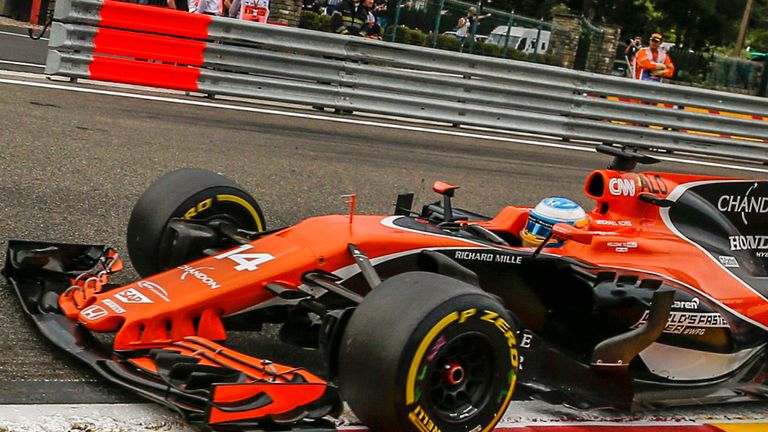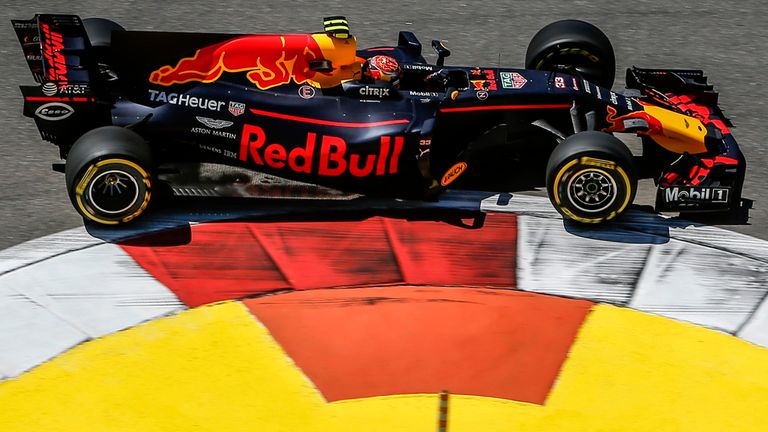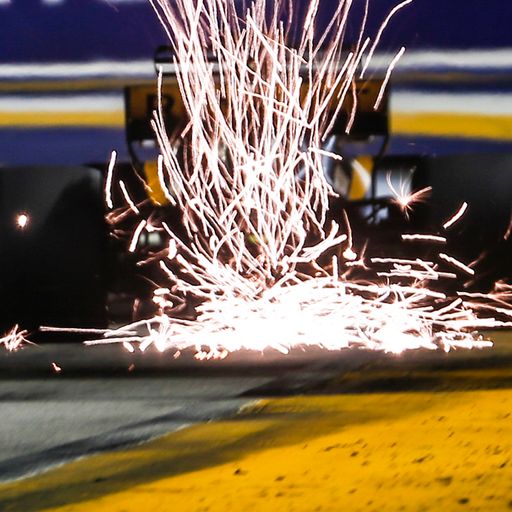Can McLaren beat Red Bull when both are Renault powered in 2018?
Mark Hughes on whether McLaren can beat Red Bull with Renault engine parity - and why it could be one of the battles of 2018...
Wednesday 27 September 2017 13:40, UK
One of the more fascinating prospects arising out of McLaren's Renault partnership is that of a straight 2018 comparison with an identically-powered Red Bull.
Throughout McLaren's painful three-year Honda relationship, it has remained adamant that its chassis has been among the best - the obvious implication being that the power unit was responsible for the shortfall.
That's probably a simplistic analysis, because although the engine has certainly cost more lap time than any chassis deficiencies we still do not know definitively how the McLaren would compare to the top cars given power parity.
A straight head-to-head with an identically-powered Red Bull next year will give as near a definitive answer as possible. Because although this year's Red Bull RB13 began the season aerodynamically flawed (because of a wind tunnel issue), it has since been developed to be arguably the best chassis of all in the season's second half, much as the Red Bulls have usually been.21
It has a power shortfall of its own, of course, but a significantly smaller one than suffered by the McLaren MCL32.
The last time McLaren had a competitive engine was in 2014 when it ran a customer Mercedes hybrid unit, and in that season it averaged over one second per lap behind the works Mercedes and was less competitive than the identically-powered Williams.
However, that car, the MP4-29, was the last before a new head of aerodynamics, Peter Prodromou, was recruited - from Red Bull. Since that time, McLarens have pursued aerodynamic philosophies visually very similar to those of Red Bull.
Prodromou worked for many years as Adrian Newey's head of aerodynamics, following him from McLaren to Red Bull. His move back to McLaren in 2014 marked his stepping out from Newey's shadow and with much to prove. Unfortunately, that coincided with McLaren beginning its ill-fated Honda partnership.
Red Bull RB14 versus McLaren MCL33, with the same power units in the back and a wealth of driver talent in both, is one of the most fascinating prospects of next season.
The idea of Fernando Alonso versus Daniel Ricciardo or Max Verstappen in closely-matched cars going hard at it throughout the season is surely a mouth-watering spectacle to contemplate for any F1 fan. Furthermore, Stoffel Vandoorne is increasingly showing signs of consistently accessing the huge potential evident on his junior career and could yet emerge to be Verstappen's long-running rival as the best of the new generation.
There are probably four absolutely front-rank teams in terms of facilities and skills. Red Bull and McLaren are two of those four.
But Mercedes' domination of the hybrid power unit formula has effectively taken two of the top four teams out of the frontline title-contending equation. Power parity with Red Bull - regardless of how the Renault engine compares with Mercedes and Ferrari next year - puts McLaren's credentials on the line as it seeks to show it has lost nothing of its former prowess despite not having won a world title since 2008 or a grand prix victory since 2012.
If it can do that, it will have gone a long way to justifying its expensive split with Honda and it can begin to attract the big name sponsors it hasn't been able to do for several years. Then a true McLaren renaissance might be underway.
But although their cars share similar design philosophies, McLaren and Red Bull are two very different entities. McLaren is hugely systems-driven, with a highly complex structure and lines of responsibility - even though racing director Eric Boullier has simplified it considerably in the last few years.
By contrast, Red Bull operates as a much simpler, but fast-reacting team. Its former driver Mark Webber has described it as 'a big F3 team' in the way it operates.
What each team chooses to do with the concept of their cars and then how they each develop them may reflect these two different approaches. It's also a potentially interesting situation in that 2018 may well be the last season of Red Bull's often fractious relationship with Renault whereas McLaren and Renault may be set for a honeymoon period.
Given the competitive paranoia that is always part of F1, there could be some feisty undercurrents from those dynamics.
Although a Red Bull/McLaren match-up is fascinating in itself, what would make it even more so would be a Renault power unit that matches anything that Mercedes or Ferrari comes up with.
A four-team fight for victory each race between Hamilton, Vettel, Alonso, Ricciardo and Verstappen? Too much to ask?
MH








